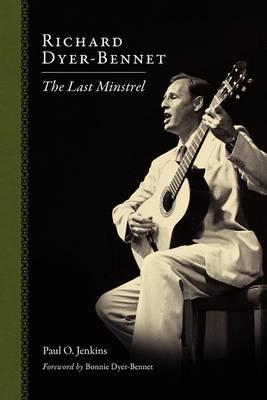In the 1940s and '50s, Richard Dyer-Bennet (1913-1991) was among the best known and most respected folk singers in America. Paul O. Jenkins tells, for the first time, the story of Dyer-Bennet, often referred to as the ""Twentieth-Century Minstrel."" Dyer-Bennet's approach to singing sounded almost foreign to many American listeners. The folk artist followed a musical tradition in danger of dying out. The Swede Sven Scholander was the last European proponent of minstrelsy and served as Dyer-Bennet's inspiration after the young singer traveled to Stockholm to meet him one year before Scholander's death. Dyer-Bennet's achievements were many. Nine years after his meeting with Scholander, he became the first solo performer of his kind to appear in Carnegie Hall. This book argues Dyer-Bennet helped pave the way for the folk boom of the mid-1950s and early 1960s, finding his influence in the work of Joan Baez, Judy Collins, and many others. It also posits strong evidence that Dyer-Bennet would certainly be much better known today had his career not been interrupted midstream by the anticommunist, Red-scare blacklist and its ban on his performances..
- ISBN13 9781617032059
- Publish Date 29 August 2011 (first published 21 September 2009)
- Publish Status Active
- Publish Country US
- Imprint University Press of Mississippi
- Format Paperback
- Pages 192
- Language English
